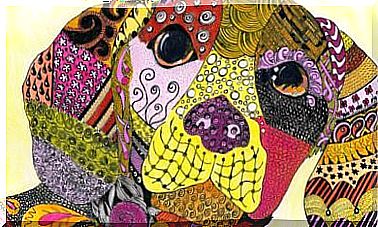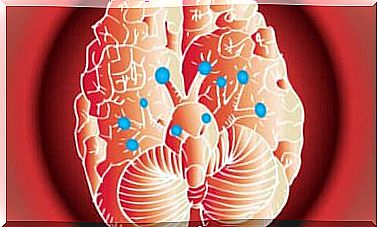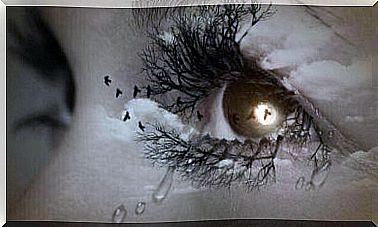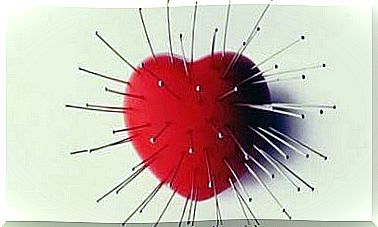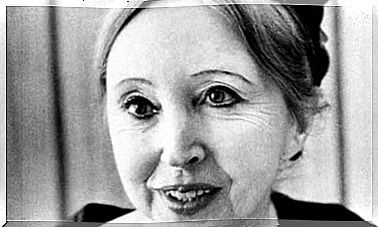9 Ways To Heal Emotional Wounds
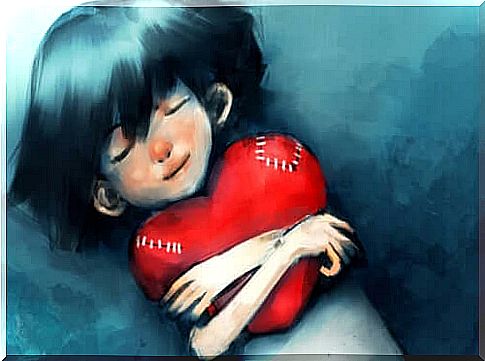
Certain situations that we have to go through are particularly difficult for us, which makes us accumulate a lot of anxiety and, sometimes, a mixture of emotions that we do not know how to handle. Fortunately, there are a number of ways to heal emotional wounds.
So here are nine ways to do it. Join us on this journey and discover what an emotional wound is and the different ways that exist to take care of it.
What is an emotional injury?
An emotional injury is the mark left on us by an experience that is uncomfortable or unpleasant to us. Usually it makes us feel deep pain. It can also generate disconcerting emotions such as fear or anger.
It arises from situations that we go through that hurt us, and we relive those experiences over and over again. It is therefore essential to forge paths of understanding and love and to fight the great frustration they can cause us.
There are all kinds of emotional wounds. To recognize them quickly, it suffices to remember those moments when we felt a great injustice, the episodes where we felt abandoned, betrayed, guilty, humiliated, lost, broken …

9 ways to heal emotional wounds
Emotional wounds can heal, but the deepest ones often come back into our lives on various occasions. Hence the importance of taking care of them. We will therefore present nine ways to do this below. We will also explain what each one consists of.
Self-awareness
When we know each other we know who we are, what we want and where we want to go – or at least we’re getting close to it. This point is essential, because we are then able to recognize what hurts us and, then, to work on it.
In addition, if we know each other, we know how we usually react to certain events. So we can use this as a way to learn to be more assertive in future situations.
On the other hand, we are closer to being authentic beings when we know each other. This is because we are starting to leave behind the masks we wear and show ourselves as we really are.
Accepting emotional wounds as a part of yourself
There are difficult times to face in life. However, we have to accept them in order to deal with them. Sometimes we don’t, either because we believe that we can handle it all and that it is unacceptable to feel sad, angry or guilty, or because we are not able to recognize the emotions that are germinating within us.
Healing emotional wounds is also accepting them; to do this, we need to be close to our wounds, explore them and observe them carefully. We then begin to let the emotions flourish.
Expressing emotional wounds is caring for them
No emotion is negative: all are necessary! So it is important to express them. For this, it is necessary to connect with each of them and let them flourish.
So how do you express emotional wounds? By giving way to the emotions that come to us when we relive situations that are painful to us.
We might express emotional wounds through speech, thought, or action. Through words, that is, by writing or talking to someone or talking aloud to yourself about the situation. By evoking the situation by thought. Or by doing various activities to express what we are feeling, such as meditation.
Let it flow
Sometimes we are not able to continue, because we want to control everything, or because we stop living “here and now” and put a lot of energy into thinking about the past or the future. It strongly attracts anxiety and depression into our lives.
It is important to let it flow. It consists of not going against the grain and rather letting things happen, without anticipating and without clinging to what passed, because we can neither control the future nor modify the past.
Healing emotional wounds involves managing emotions
Emotional management is the key, and healing emotional wounds is the key. Being assertive with our emotions is to promote greater well-being. It means communicating in the best possible way what we are feeling.
To do this, we must learn from our past experiences, so that we can act in a healthier way in the future. Managing our emotions doesn’t mean we can’t feel bad. This means that we will find the right moment to express it.
Now don’t blame yourself if your emotions are escaping you. Do not forget that you are a human being and that mistakes are necessary in order to learn.
Resilience is key to healing emotional wounds. It is the ability to overcome adversity. Some of us can rely on this ability, others cannot. The good thing is that we can cultivate it. To do this :
- Accept the change
- Make optimism your best ally
- Cultivate your sense of humor
- Take care of your relationships
- Engage in activities that make you grow taller and feel good
Finding meaning in our life is also important. This is a wonderful legacy that Victor Frankl left us in his book Discover a meaning in his life thanks to logotherapy . It is about finding a meaning that generates satisfaction and encouragement, which will be different depending on the person.
Resilience is a great ally because it helps us overcome painful circumstances, but it doesn’t mean we forget about them. This means that we move forward despite the great pain they have caused us.
Motivation
Sometimes it can be difficult to think about the questions that motivate us. So here are some tips that can generate really flattering results.
- Get physical exercise. It is a way to heal emotional wounds, because physical exercise releases endorphins, neurotransmitters that generate a feeling of well-being.
- The art. Making art or observing an art can be beneficial. This is a good way to transform anxiety.
- Meditation. It is a door to consciousness. This activity allows us to see a situation from another angle.
Any other activity that makes you feel good can be of great help. Sometimes, in order to heal our emotional wounds, it is important to disconnect. So the development of certain activities is favorable. Only you know which one is best for the moment you are going through.

Help from others
N e have often hard to accept that we can not do everything. However, we are not omnipotent. Part of caring for emotional wounds is recognizing that sometimes help is helpful.
We can then seek professional help. Psychologists are experts in behaviors, thoughts and emotions. They can therefore help us deal with what hurts us so much or promote and maintain healthy habits.
Empathy, essential to heal emotional wounds
Let us remember that we are not unique. Helping others heal their emotional wounds can help us heal our own wounds. To do this, we need to connect with them.
Empathy is about putting yourself in the other’s shoes. Only then can we deeply understand what is happening to him, listen to him and seek the best alternatives that are in our hands to generate profits.
Caring through empathy means giving the best of yourself, taking into account what the other feels and needs. It is making compassion, assertiveness and understanding our core competencies. It is giving our neighbor our best care, acting as emotional support.
Healing emotional wounds is not easy, but it is possible. It is important to be consistent on a daily basis, so that we can feel better. Being attentive to oneself and to others improves our quality of life.
Connect deep inside you. Listen to yourself. Let life flow. Be assertive with your emotions. Don’t be ashamed to ask for help when you feel it is necessary. Make empathy a tool for interacting with others.
Cultivate resilience. Notify yourself with the activities that appeal to you the most. Accept what happened. Spread your wings and take flight to take care of yourself and others.

